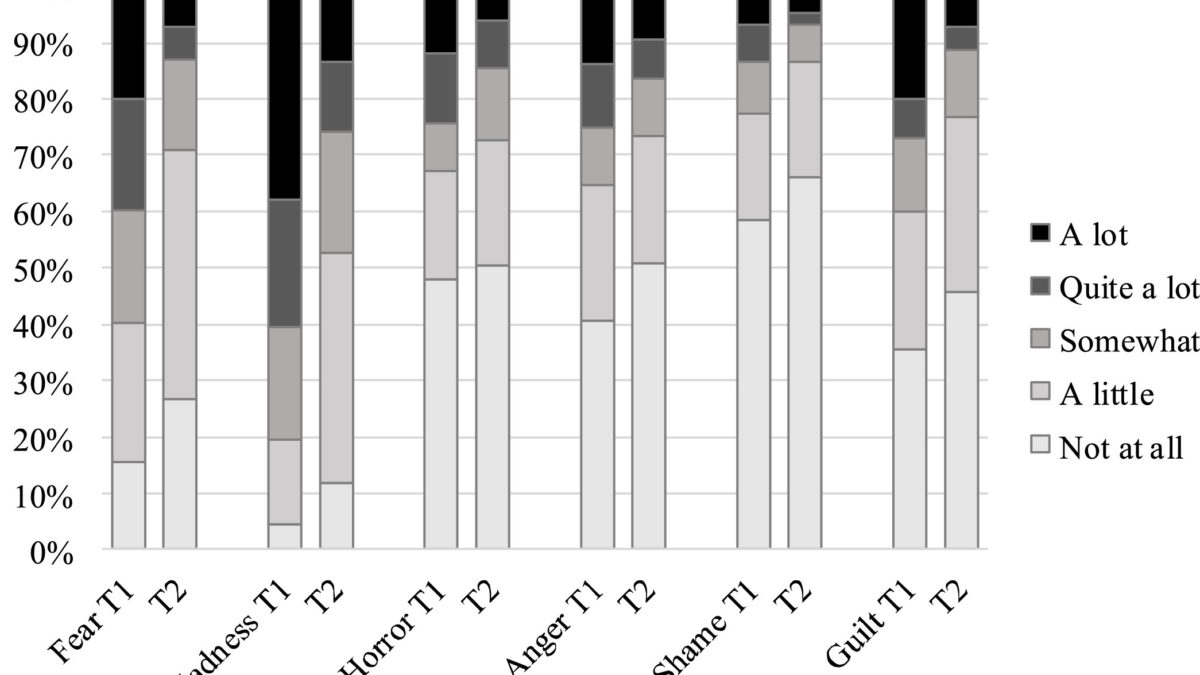Mothers’ emotions after pediatric burn injury: Longitudinal associations with posttraumatic stress and depressive symptoms 18 months postburn
Background
Various emotions are implicated in posttraumatic stress disorder (PTSD). Longitudinal studies examining temporal associations between emotions and posttraumatic stress may reveal who is at risk of chronic psychological problems. This study examined the longitudinal relationships of mothers’ trauma-related emotions with posttraumatic stress and depressive symptoms after pediatric burn injury.
Methods
Data from two cohort studies were used (n = 296). Mothers reported the intensity of burn-related emotions within the first month (T1) and 12 months postburn (T2). The Impact of Event Scale (IES) and the Hospital and Anxiety Depression Scale (HADS-D; depression subscale) were administered at T1 and 18 months postburn (T3).
Results
Based on two exploratory factor analyses, emotion variables were combined into acute and long-term basic emotions (fear, sadness, horror, anger) and self-conscious emotions (guilt, shame). The path model showed a positive relationship between acute and long-term basic emotions. Higher long-term basic emotions were related to persistence of posttraumatic stress and depressive symptoms. Acute self-conscious emotions showed associations with posttraumatic stress and depressive symptoms at T1 and were longitudinally related to depressive, but not posttraumatic stress, symptoms.
Limitations
The posttraumatic stress measure was not based on DSM-5 PTSD criteria and results require replication using these criteria.
Conclusions
This study suggests that mothers’ acute self-conscious and long-term basic emotions in relation to their child's burn injury are involved in the development of posttraumatic stress and depressive symptoms. Clinically, assessing and monitoring parents’ early posttraumatic stress, depressive symptoms and burn-related emotions may be useful to identify parents at risk.
Egberts, M. R., Engelhard, I. M., van de Schoot, R., Bakker, A., Geenen, R., van der Heijden, P. G., & Van Loey, N. E. (2019). Mothers’ emotions after pediatric burn injury: Longitudinal associations with posttraumatic stress-and depressive symptoms 18 months postburn. Journal of Affective Disorders DOI: https://doi.org/10.1016/j.jad.2019.11.140
Marthes project is focused on psychological consequences of pediatric burn injury. She primarily examines child and parent posttraumatic stress reactions with the use of prospective data and advanced statistical modelling (such as multilevel and structural equation models).



